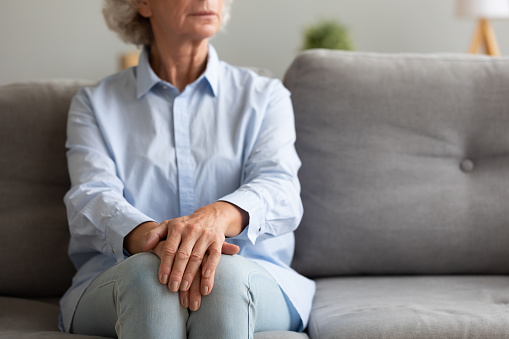Public health experts recommend social distancing to help protect people against catching COVID-19—causing one reader of an MIT Medical column to ask if our immune systems can be worn down by staying away from germs.
The answer? First, there is something called a “hygiene hypothesis” that suggests being exposed to germs in childhood can help to build immune response. By the time you reach adulthood, though, your body has built up immunity to viral infections and bacteria—and can “remember” them and fight back. The problem with COVID-19, of course, is that the virus causing it (SARS-CoV-2) is new, so your body won’t build an immune response unless you get infected.
But whether viral infections are new to you or not, being exposed to them doesn’t actually make your overall immune system stronger—so isolation can’t make it weaker.
Effects of Loneliness
Loneliness and social isolation can have a negative impact on a person’s immune system and health. An overview of 148 studies shows that people with good social connections were 50% less likely to die during a certain timeframe.
As NPR reports, loneliness can trigger a fight or flight response. Long ago, this reaction would have helped to protect our ancient ancestors in life-threatening scenarios, perhaps when encountering dangerous animals. As hormones involved in the fight or flight response would course through the body to help address a hazardous scenario, certain immune functions start to shut down.
Although the science behind all of this can be complicated, this result may be that the bodies of lonely people may be shutting down genes that allow them to be sensitive to a substance called cortisol. The job of cortisol is to lower inflammation so that when this process is interfered with, this actually increases inflammation—and chronic inflammation can make people more susceptible to disease.
Medical News Today has more information about the specific processes that may underscore the effects of loneliness when it comes to immunity problems — gleaned from a study at the University of California-Los Angeles (UCLA) and the University of California-Davis. It includes specifics about how blood samples taken from lonely people can have higher levels of white blood cells (that contribute to inflammation), which can correspond with a greater degree of poor health. For information about foods that can help to fight inflammation, here is a post from Kendal.
Managing Loneliness and Social Isolation During COVID-19
VeryWellMind.com provides an extensive list of recommendations, noting that older adults can be especially vulnerable. The first is to stay on schedule as much as possible. Create a list of what you’ll accomplish each day and focus on completing it.
Staying active can also make a difference. If you feel comfortable walking in your neighborhood, do so. If you’d rather stay home, practice yoga or Tai Chi moves (there are plenty of YouTube videos to help!) or walk on a treadmill. Mindfulness can also help to reduce stress.
It’s also important to keep mentally sharp; here are exercises to help. Practicing your creativity can distract you from worries about COVID-19 or stress from loneliness. If you enjoy writing, keep a journal, write letters or emails to friends and family, or write poems or short stories.
If art is more appealing to you, you can color, paint, knit, crochet or create a photo album. You may find comfort in participating in artistic activities you’ve done in the past, or it may be more invigorating to try something brand new. Time to rearrange your rooms or organize your bookshelf? Are there classes you’ve always wanted to take? Increasing numbers of them are becoming available online, often for free or at a low cost.
Although traditional ways of getting together with friends and family may be on hold for now, you can still talk on the phone or use online options like Skype or Zoom.
Relax in the tub and then enjoy a cup of your favorite tea. Try a new recipe that you clipped out or bookmarked but haven’t yet cooked. Listen to your favorite music. In short, find activities that comfort you and provide pleasure.
To help protect yourself against infection, you may be having groceries and other staples delivered. If you do need to go to stores, check to see which ones offer special hours for older adults.
If you find yourself struggling with anxiety or depression, reach out to a friend or family member or even a helpline. Here are some resources provided by the Ohio Department of Health










